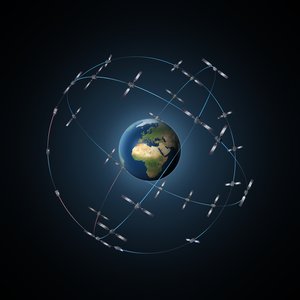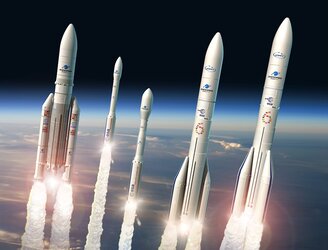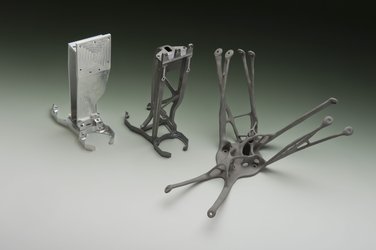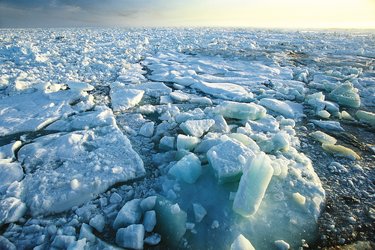Scientific Programme
Enable the European scientific community to achieve and sustain excellence in science and technology, being a constant source of inspiration, fascination and motivation for Europe at large; and be a pillar in the creation and maintenance of space skills and capabilities for Europe, including advanced technologies that are key for the competitiveness of European industry on the worldwide scene.
Outcome
Achieve these key objectives through the level of resources for mandatory activities for the period 2017 to 2021:
- launch readiness of CHEOPS to study exoplanet transits;
- launch of BepiColombo, on an Ariane 5;
- launch of the NASA-led James Webb Space Telescope mission, on an Ariane 5;
- launch of Solar Orbiter to study the Sun and heliosphere, by a NASA-provided Atlas 5; and
- launch of Euclid to understand the nature of ‘dark energy’, on a Soyuz from CSG.
 |
 |
 |
 |
Impact
ESA delivers space science all Europeans can be proud of.
Each of the four ESA-led missions that will be launched in the coming years demonstrates European excellence in its respective field, and is based on unique European technology. All the candidate missions now under study address equally fundamental scientific challenges, showing the unique virtuous cycle of scientific and technological excellence between the European scientific community and industry. In addition to the new missions starting to bear fruit, a number of the programme’s current missions will continue to produce key results (these ‘highlight’ results are the outcome of long-past decisions and investments). A vibrant scientific community engaged in world-class basic research is the foundation of any innovation and growth process. As shown by its highly visible, unique achievements, the Scientific Programme fosters excellence and thus contributes crucially to the innovation and growth of Europe.















 Germany
Germany
 Austria
Austria
 Belgium
Belgium
 Denmark
Denmark
 Spain
Spain
 Estonia
Estonia
 Finland
Finland
 France
France
 Greece
Greece
 Hungary
Hungary
 Ireland
Ireland
 Italy
Italy
 Luxembourg
Luxembourg
 Norway
Norway
 The Netherlands
The Netherlands
 Poland
Poland
 Portugal
Portugal
 Czechia
Czechia
 Romania
Romania
 United Kingdom
United Kingdom
 Slovenia
Slovenia
 Sweden
Sweden
 Switzerland
Switzerland



































